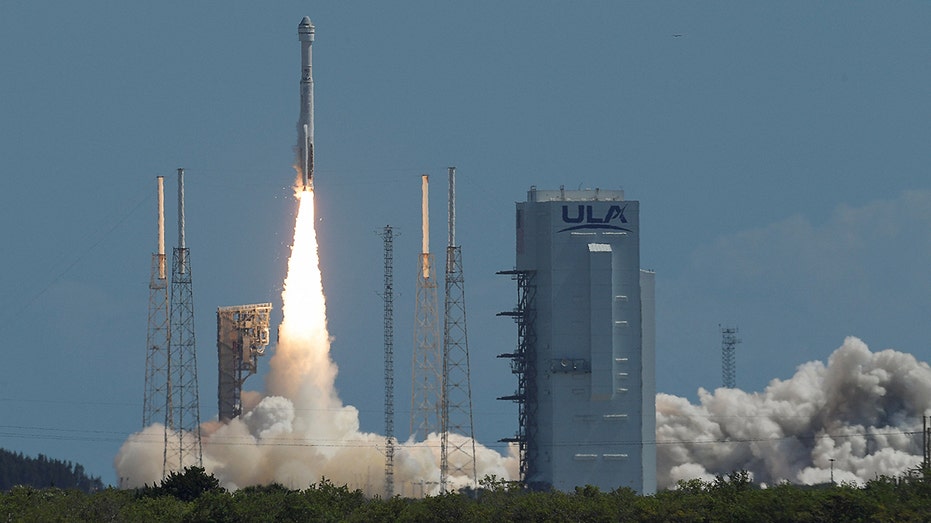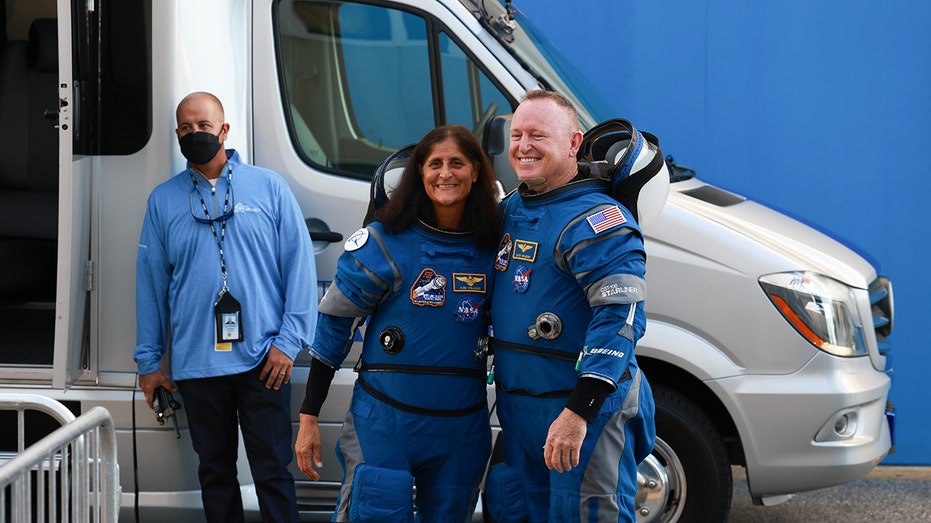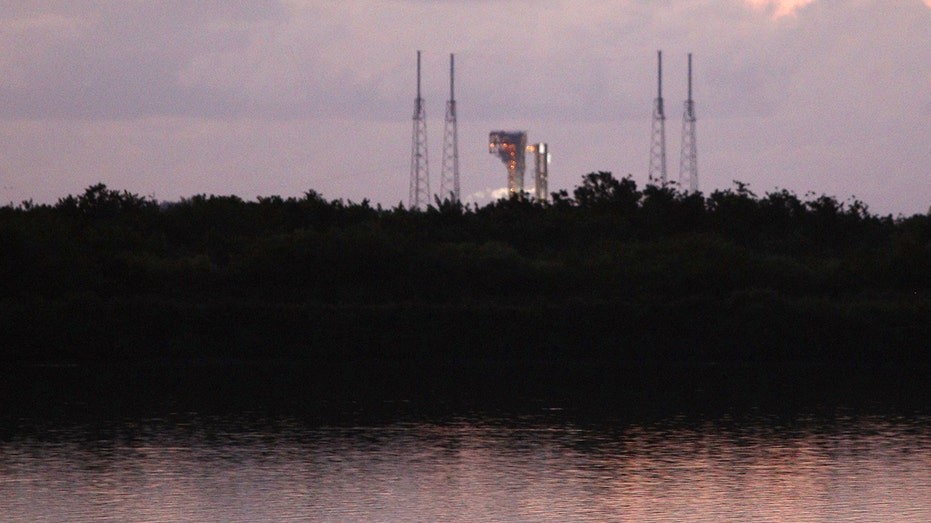Boeing Starliner launches 2 NASA astronauts into space in first piloted test flight
Butch Wilmore, Suni Williams aboard Boeing Starliner heading to the International Space Station
NASA astronaut on Boeing Starliner gives all-American speech before liftoff
NASA astronaut Butch Wilmore gave a stirring speech alongside Suni Williams on Wednesday before Boeing's Starliner spacecraft lifted off from Cape Canaveral, Florida.
The third time proved to be the charm for NASA and Boeing, which successfully launched two astronauts into space Wednesday morning from Cape Canaveral, Florida.
Liftoff, which was scheduled for 10:52 a.m. ET, occurred without a hitch. It is Boeing's first piloted test flight.
The United Launch Alliance (ULA) Atlas V rocket and Boeing Starliner carrying astronauts Butch Wilmore and Suni Williams is heading for the International Space Station (ISS). The Starliner is expected to arrive at the space station after a flight of about 24 hours and dock with the orbiting research outpost some 250 miles above Earth.
"Suni and I, as we were traveling to the pad, we saw many American flags and many of you were waving flags at us," Wilmore said less than six minutes before the rocket launched. "And then as we reached the pad, we looked up and of course there's an American flag on the side of the white room, also one on the side of the rocket itself. We know that that represents unity and resilience and unified efforts for the common good. That's what Suni and I have witnessed this last month."
BOEING'S 1ST ASTRONAUT FLIGHT NOW SET FOR JUNE AFTER A REVIEW OF SMALL LEAK ON NEW CAPSULE
WATCH STARLINER LAUNCH INTO SPACE:
Boeing Starliner launches into space with 2 NASA astronauts on board
Astronauts Butch Wilmore and Suni Williams on Wednesday launched into space aboard Boeing's Starliner spacecraft from Cape Canaveral, Florida.
"Each of you displaying what this nation's forefathers envisioned," he continued. "A people committed to God, family and country. A people who use their gifts and talents for the common good, and are passionate and tough. And we all know when the going gets tough, and it often does, the tough get going, and you have. And Suni and I are honored to share this dream of space flight with each and every one of you."
"Let's put some fire in this rocket, let's push it to the heavens, where all these tough Americans have prepared it to be," he concluded.
Wilmore and Williams will be at the ISS for about a week, testing "the Starliner spacecraft and its subsystems before NASA works to complete final certification of the transportation system for rotational missions to the orbiting laboratory as part of the agency’s Commercial Crew Program," NASA said.

A United Launch Alliance Atlas V rocket carrying two astronauts aboard Boeing's Starliner-1 Crew Flight Test is launched Wednesday from Cape Canaveral, Florida, on a mission to the International Space Station. (Reuters/Steve Nesius / Reuters Photos)
Boeing had posted a mission update stating that engineers and technicians closed the hatch to the CST-100 Starliner after ensuring Wilmore and Williams were safely secured in their seats at 9:08 a.m.
BOEING’S STARLINER PROJECT ‘YEARS BEHIND SCHEDULE’: ARTHUR ROSENBERG
| Ticker | Security | Last | Change | Change % |
|---|---|---|---|---|
| BA | THE BOEING CO. | 243.03 | +6.08 | +2.57% |

NASA’s Boeing Crew Flight Test Commander Butch Wilmore and Pilot Suni Williams walk out of the Operations and Checkout Building in Cape Canaveral, Florida, on Wednesday. (Joe Raedle/Getty Images / Getty Images)
The last attempt to launch Boeing's Starliner spacecraft was scrubbed Saturday less than four minutes before blastoff from NASA'S Kennedy Space Center due to a ground system computer triggering an automatic abort command that shut down the launch sequence.
The first attempt to launch was on May 6. NASA, Boeing and ULA scrubbed the opportunity "due to a suspect oxygen relief valve on the Atlas V rocket’s Centaur second stage," a launch attempt coverage advisory stated.

An alligator swims along the Turning Basin at dawn near the United Launch Alliance Atlas V rocket as Boeing's CST-100 Starliner spacecraft sits at Space Launch Complex 41 in Cape Canaveral Space Force Station in Florida on Wednesday. (Gregg Newton/AFP via Getty Images / Getty Images)
CLICK HERE TO READ MORE ON FOX BUSINESS
NASA's partnership with Boeing and SpaceX came about after space shuttles carrying astronauts retired. SpaceX has successfully been sending astronauts into space since 2020.
More than 256,000 people watched the launch on NASA's YouTube livestream alone. The launch was broadcast via other channels and feeds, as well.
Reuters contributed to this report.






















